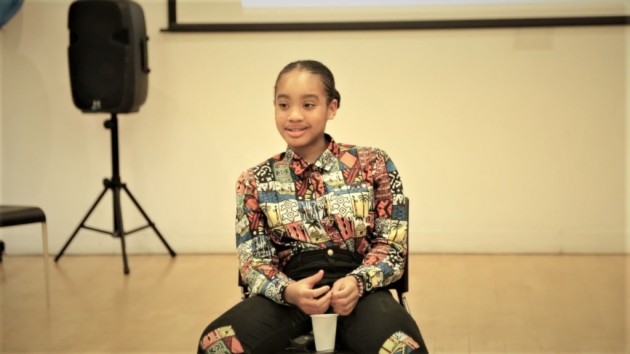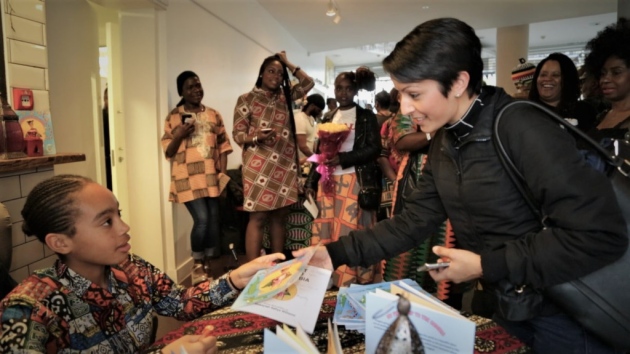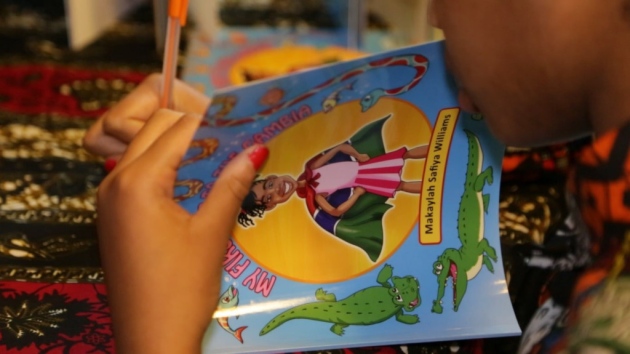
Makaylah Williams, from London, returned to school last week with some epic news to share with her friends in the playground.
On the Saturday before, the 12-year-old had been at the launch event for her debut book – My First Trip to The Gambia – where she introduced her story to over 250 guests.
“When she spoke, you could hear a pin drop; everyone was listening to what she was saying,” says Davis – Makaylah’s dad – “I was very proud and happy for her.”
The book is based on a true story, covering the events of Makaylah’s trip to The Gambia for a holiday in October 2014. After noting down some of her interactions and experiences in a journal, Davis had the idea of developing her account in to a story perfect for imaginative children aged eight plus.
“A lot of young people are influenced by the media,” adds Davis, “and she thought there would be lions and tigers roaming the streets. She assumed that it would be wild.
“(When she arrived) she realised this was a beautiful country, with people sharing stories, music and food. It’s about encouraging people not to buy in to negative stereotypes and to be open-minded. I didn’t want to force her in to writing a book; I wanted her to do it for herself.”

With illustrations by Jason Lee, Makaylah’s colourful book wants to “teach children about the continent of Africa and develop their confidence, self-esteem and sense of adventure.”
What’s more, 10 per cent of book sales will be donated to the Manhood Academy for Boys and the Womanhood Academy for Girls; two local initiatives set-up by Davis which are also inspired by Gambian culture.
Aimed at young people in the African and Caribbean community who might have an absent father (or mother), the charity hosts weekly gatherings where topics like toxic masculinity, peer pressure, body image, mental health and the effects of social media are covered.
“There are massive issues for some of our young people with their fathers not being there, as fathers can’t initiate these young boys and introduce them to manhood.
“In The Gambia it’s a part of their culture. As soon as they reach 13 they are taken in to the village and taught how to hunt (and) how to control their emotions; the mindset of the people in that country is different, there is a level of respect for each other.

“Together with my colleagues I wanted to teach people about manhood. We decided to focus on taking young people through a process of masculinity; teaching them about emotional intelligence and how to find themselves.”
By Dan Splarm, Islington Gazette










Recent Comments